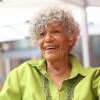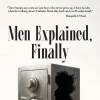At Bunker Hill Community College, most students ride the T to campus. Not this semester.
“I have asthma. I was afraid that I might catch [the coronavirus]. My anxiety was really bad,” said Cindy Morales of Dorchester, who took the Red and Orange lines to Charlestown for a few in-person nursing classes. She struggled to keep up with her coursework online in the spring, and then made the difficult decision to withdraw from school over the summer.
Over the summer, the 26-year-old single mom lost her job at a fast food restaurant, and this fall she’s been supervising her 5-year-old son Jonah while he attends kindergarten on her computer. It has all left Morales feeling overwhelmed, tired and defeated.
“I have to be by his side most of the day and then after I don’t have anyone to watch him, since it’s just me and him,” she said.
Historically, community colleges have gained enrollment during recessions, as unemployed people often go back to school to upgrade their skills with the hope of getting a better job when the economy improves. But this year, enrollment has gone down — by about 12% at community colleges in Massachusetts. That’s compared to a 7% decline at the state’s public four-year universities. A big reason for this, schools say, is that students like Morales, who were already enrolled, are stepping out.
“Students are not enrolling at the same rate because this pandemic has caught all of us flat-footed,” said Pam Eddinger, Bunker Hill's president. “This pandemic has too many different elements that are volatile. It's not just, ‘The jobs are disappearing for a little bit and you can retrain for something else.’ Restaurants are closing. My culinary students, even if I trained them some more, have nowhere to go.”
Eddinger says many of her students are juggling increased family responsibilities. Three out of five are parents and many are low-income.
“Education is not at the center of their lives, and when their lives get crazy and volatile, higher education is the first to go,” she said.
Pre-pandemic, most Bunker Hill students worked in service or entry-level jobs — those that contributed the most to the state’s unemployment rate becoming the highest in the nation in July and August.
“If you’re unemployed, the last thing that you're going to think about is, ‘I've got to go back to school,’ particularly when it's so fresh and so recent,” Eddinger said.
Davis Jenkins, an economist who studies community colleges at Columbia University, said the coronavirus recession is devastating America’s low-income, Black and Latino college students, while largely sparing middle- and upper-class white and Asian students who can afford the technology and time required to attend classes on Zoom.
“The fact that disproportionate numbers of low-income students and students of color are sitting out this term in the long run is only going to increase the gulf we’re seeing between education haves and have nots, which in turn will reinforce the inequality that’s been plaguing our society,” he said.
During the Great Recession, Jenkins said, more than a million new people enrolled in community colleges. But the current economic downturn is broader and deeper.
“This recession has really decimated the service jobs that community college students rely on to make ends meet while they’re studying,” he said. “Now they’re being forced to choose between learning for a brighter future and putting bread on the table and paying their rent. and they’re going to choose the latter.”
Sara Goldrick-Rab, a sociologist at Temple University in Philadelphia, said the steep drop in enrollment has been "devastating, and it was preventable."
Community colleges, she said, could have provided more support to students, including laptops, WiFi, child care and even stipends to cover food and other living expenses, “except that they have been systematically underfunded for literally decades.”
“If we put the kind of money into community colleges that we put into highly selective private universities," she added, "students would be able to enroll, because community colleges could provide more services.”
Goldrick-Rab said the city and region cannot survive economically without strong, well-funded community colleges.
“What will happen is that Boston will be opened for business to the for-profit colleges and universities who will swoop in, take advantage of your students and leave them with worthless credentials that do not allow them to repay their debt,” she predicted.
This fall, enrollment has risen nationwide at for-profit colleges like the University of Phoenix, which are spending more on TV and social media ads likethis one, featuring a student juggling his coursework while also caring for his young daughter.
“It is not a sign that there is more demand for for-profit colleges,” Goldrick-Rab said. “It means we have created a vacuum and people are ... falling into this black hole.”
To help attract and retain students, Eddinger said administrators have made some accommodations. “We took the withdrawal date and moved it all the way to the end of the semester, so students have more time to think about, ‘Can I manage once my kids go back to school?’” she said.
Administrators are also giving students the option of pass-fail grades and have urged four-year college partners to be flexible and accept those course credits from transfer students.
Bunker Hill and the state’s 14 other community colleges announced this week they’ll continue to offer primarily remote and hybrid learning through the spring.
In Dorchester, Morales is working nights at a retail chain store and says she plans to re-enroll next semester. She’s working with a college advisor through the Boston Private Industry Council and trying to stay optimistic for her son.
“We can do this,” she said. “It takes time and it takes patience, but at the end of the day, we're going to get through this. We’re going to get our degrees and we're going to be in a much better situation than we were before.”
GBH News' Diane Adame contributed to this report.





